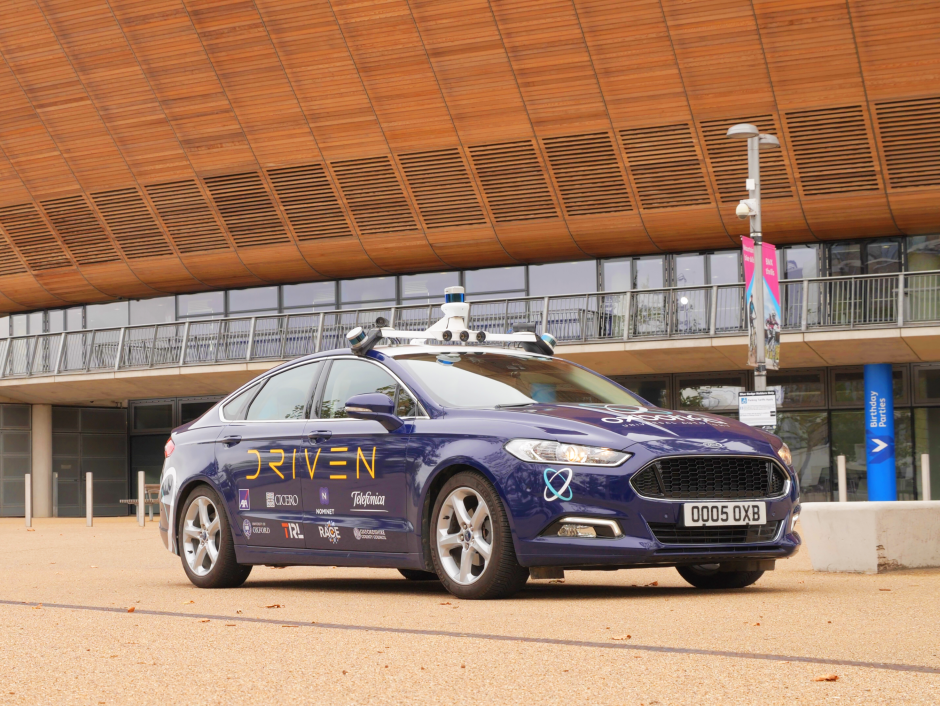
Advocates of the technology will point to reduced emissions and less congestion as just two virtues making autonomous cars an attractive proposition.
“With autonomous vehicles comes increased road safety,” said Stefan Marxreiter via email, chief operating officer at Mobica, which is working with OEMs including JLR to develop the technology behind autonomous vehicles. “It’s been estimated that self-driving cars will reduce traffic deaths by 90 per cent - saving 30,000 lives per year - in the US alone.”
Driverless cars learn from humans in Greenwich project
DRIVEN consortium on road to autonomous success
Self-driving cars will also take the drudge out of driving but an ICM poll for the Institution of Mechanical Engineers (IMechE) found that 60 per of UK adults would rather drive themselves despite statistics that show 90 per cent of road accidents occurring because of human error.
IMechE’s Public perceptions: Driverless cars found also that 32 per cent of people polled want driverless cars restricted to 30mph and that 66 per cent are uncomfortable with the very notion of travelling in an autonomous car.
ANSYS’ global Autonomous Vehicles Report found 43 per cent of those polled in Britain saying they’d ‘never be comfortable’ with riding in a self-driving car compared to 26 per cent of respondents in Germany and three per cent in China.
The good news for the automotive industry and its suppliers is greater acceptance among younger people, both in the UK and overseas markets. ANSYS’ survey of 22,000 people found 87 per cent of 18-to-24-year-olds and 88 per cent of 25-to-34-year-olds saying they’re ready to ride in autonomous cars ‘in their lifetime’.
It remains to be seen whether the technology will be used as a service or remain part of the current ownership model, but the market for connected and autonomous vehicles (CAVs) is considerable. In 2017 the Transport Systems Catapult estimated the global market for CAVs to be worth £907bn globally and the government’s Industrial Strategy has paved the way for more highway trials of autonomous vehicles by 2021, including a program of public engagement.
“I can understand why the general public would perceive that autonomous vehicles are less safe than human drivers, but from a testing standpoint you could argue they are held to a much higher safety standard than people,” said Dr Keith Hanna, VP of marketing, MSC Software. “Human drivers are not required to drive 11 billion miles before obtaining a licence but using well-designed simulations, we can ensure that our autonomous systems have experienced and been taught to handle nearly every imaginable scenario before the tyres even hit the tarmac.”
A trial that has gone a long way to assuage the public took place in the London borough of Greenwich where the GATEway project invited the public to ride in or experience a fleet of driverless pods before revealing their thoughts on the experience.
The project ran for three years with 5,000 people signing up to participate in the self-driving shuttle service trials. IMechE agree that this sort of initiative will help inspire confidence in autonomous vehicles following high-profile accidents in the US and real fears around vehicles – or the connected devices of vehicle operators - being hacked.
In South London, FiveAI has been testing a fleet of five Ford Mondeos in Croydon and Bromley prior to passenger trials planned for 2020. The company is developing software to give Level 4 readiness to autonomous vehicles, which essentially hands over all driving functions to the car.
Despite this obvious progress, Safa Alkateb, CEO of Autocab, a Cheshire-based software and GPS fleet management company, believes it is likely to be another 11-to-13 years before autonomous vehicles become ubiquitous, which he said via email is in line with the growth of the subscription model in transport.
Echoing this view, Dr Stefano Longo, a senior lecturer at Cranfield university said: "The biggest problem in autonomous driving today is testing the complex algorithms. The UK is not ready yet for the deployment of autonomous vehicles, but it is ready to fully assess their safety in highway, urban and geofenced driving."










Water Sector Talent Exodus Could Cripple The Sector
One possible reform to the Asset Management Plan (AMP) system would be to stagger the five year cycle across the ten or so water businesses, so that...